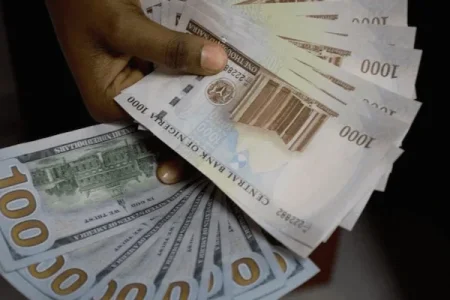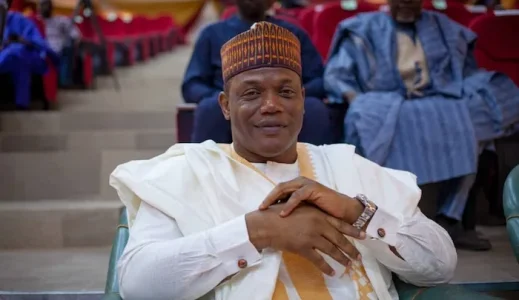
Nigerian naira hits lowest level since March, trading at N1,577/$. Factors include high dollar demand, soaring inflation, and global economic uncertainties. CBN interventions prove insufficient. Trump assassination attempt speculation impacts dollar strength. Naira's decline poses challenges for the Nigerian economy and policymakers.
Nigerian naira hits lowest level since March, trading at N1,577/$. Factors include high dollar demand, soaring inflation, and global economic uncertainties. CBN interventions prove insufficient. Trump assassination attempt speculation impacts dollar strength. Naira's decline poses challenges for the Nigerian economy and policymakers.
The Nigerian naira has hit its lowest level since March 15, trading at N1,577 against the U.S. dollar in the official market. This decline comes despite the Central Bank of Nigeria's (CBN) efforts to stabilize the currency, including recent dollar sales totaling $122.7 million to local currency dealers.
Multiple factors are contributing to the naira's weakness. High demand for U.S. dollars from corporations and individuals planning overseas travel is putting pressure on the local currency. Additionally, Nigeria's inflation rate has soared to a 28-year high of 34.19% in June 2024, further undermining confidence in the naira.
Internationally, the U.S. dollar has shown some strength following an alleged assassination attempt on former President Donald Trump. This incident has fueled speculation about a potential second Trump term, which some believe could lead to more protectionist policies and higher inflation in the U.S.
The naira's decline poses significant challenges for Nigerian businesses and consumers, potentially leading to higher import costs and further inflationary pressures. The CBN has maintained a hawkish stance, raising interest rates to curb inflation and maintain market stability, but these measures have yet to fully address the currency's slide.
As global economic uncertainties persist and domestic economic challenges continue, the naira's performance remains a key concern for policymakers and market participants alike. The coming weeks will be crucial in determining whether the CBN's interventions and broader economic policies can stabilize the currency and mitigate the impact on Nigeria's economy.



![[FULL LIST] Tinubu Appoints IBB's Son, Others to Lead Key Agencies](/data/attachments/219/219051-c45e0723af5235b4e99b88eb1fa579fd.jpg?hash=su4VHIBpS9)
